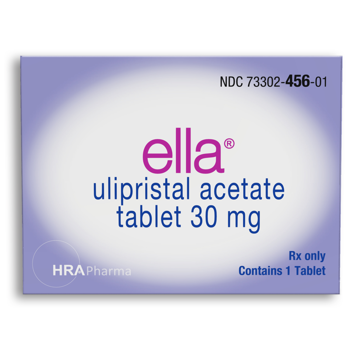- Birth control
- Emergency contraception
Emergency contraception

What is emergency contraception?
Emergency contraception (EC) (sometimes called the “morning after pill”) can stop a pregnancy before it starts by delaying ovulation. There are three different kinds of EC: an over-the-counter pill, a prescription-only pill (called ella), and certain IUDs.
Both the over-the-counter pill and the prescription-only pill work if you take them within five days (or 120 hours) after having unprotected penis-in-vagina sex. The sooner you take EC pills, the more effective they are, but prescription-only EC is more likely to be effective on the fifth day after unprotected sex than over-the-counter EC is. So it’s a good idea to get EC in advance, so that if you need it in the future, you’ll have it on hand and can start it as soon as possible.
Some people think that the emergency contraception pill is the same as the abortion pill, but they’re actually completely different. Both types of emergency contraception pills work by preventing ovulation (the release of an egg from one of your ovaries) during your current menstrual cycle. If you don’t ovulate, then there’s no egg for your partner’s sperm to fertilize. The abortion pill, on the other hand, stops a pregnancy that has already started (which means you’ve ovulated, the egg has been fertilized, and the fertilized egg has implanted in your uterus). Then it brings on your period, which flushes everything out of your uterus.
While EC pills are the most well-known kind of emergency contraception, the most effective kind of EC is actually having an IUD inserted within five days of having unprotected sex.
There are three IUDs that we know work as EC: Paragard, LILETTA, and Mirena. Not only can they prevent a pregnancy from starting after you’ve had unprotected sex, but they can also act as an extremely effective birth control method moving forward.
Quick Facts
-
Effectiveness
The IUD as EC is super effective. The prescription-only EC pill is more effective than the over-the-counter EC pill but neither is as good at preventing pregnancy as lots of methods you can use before or during sex.
Perfect use: If you use the IUD as EC, over 99% effective
Typical use: If you use the IUD as EC, over 99% effective
What are perfect use and typical use?
-
Hormones
There are hormonal and non-hormonal options.
-
Side effects
With the IUD you might have bleeding changes and cramping. EC pills can cause temporary upset stomach, vomiting, changes to your period, and sore breasts.
-
Cost
Anywhere from $0-$1300.
-
STI protection
Emergency contraception doesn’t protect against STIs.
-
Ongoing effort
With the IUD, it’s inserted once and can stay in for years with no ongoing effort. With EC pills, once you’re done taking them, you’re done.
Types of emergency contraception

Over-the-counter EC pill
Over-the-counter emergency contraception is a pill you can grab at the drugstore, the grocery store, a health center near you, or online. There are no age, sex, or gender restrictions on who can get over-the-counter emergency contraception, and you don’t have to show ID to buy it.
You may know over-the-counter emergency contraception by the brand name Plan B, but there are many other brands just like it, such as Next Choice, One Dose, and My Way. Over-the-counter EC may not be as effective in people who weigh 165 pounds or more.

Prescription EC pill (ella)
Ella is a different kind of emergency contraception pill than the kind you can get over the counter. You need a prescription to get it, but you may be able to get the prescription from a telehealth provider. There’s no age requirement to get ella. Ella may be less effective in people who weigh 195 pounds or more. It’s a better option than over-the-counter EC pills for people who weigh between 165 and 194 pounds.

IUD as EC
The most effective type of emergency contraception is the IUD. If you get the non-hormonal/copper IUD (Paragard) or a hormonal IUD with 52mg of levonorgestrel (LILETTA or Mirena) inserted within five days of having unprotected sex, it’s over 99% effective at preventing pregnancy.
If you want to, you can keep the IUD in for up to eight years if you have LILETTA and Mirena or up to 12 years if you have Paragard. You can also choose to have it removed once you’ve used it as EC. To use an IUD for EC, you’ll need to see a health care provider to have one inserted. IUDs work equally well as EC for everyone, regardless of weight.

We can help you find an in person provider or online birth control delivery service.
find health care